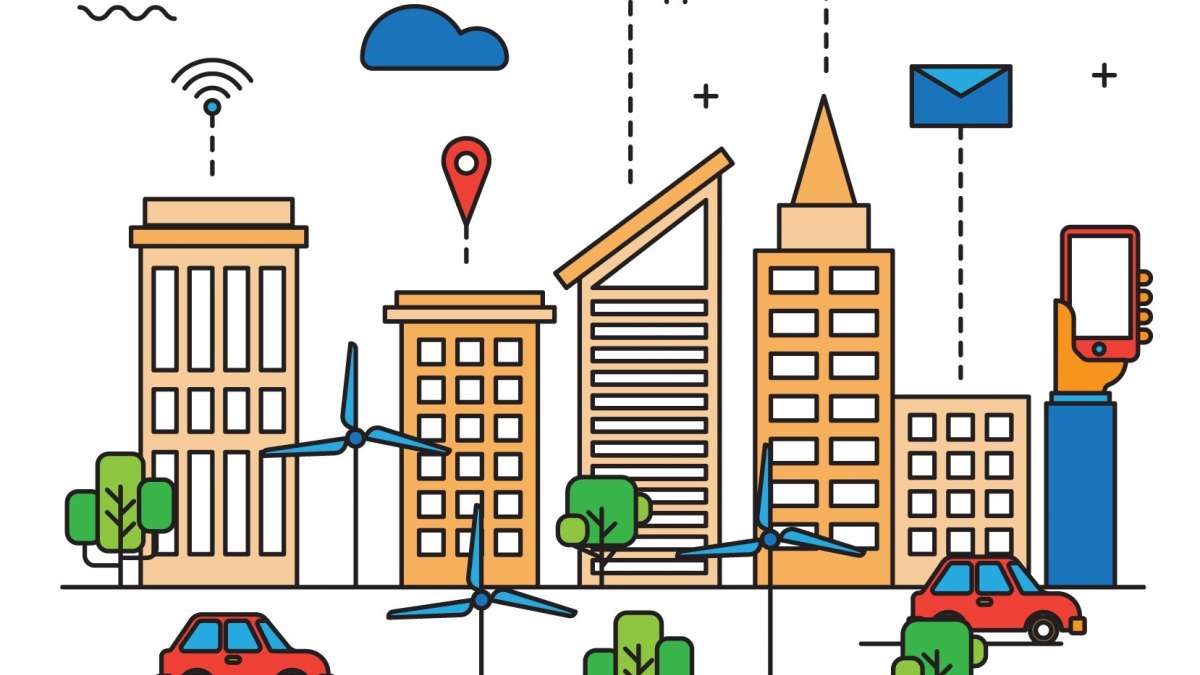This article is part of the folder : MySmart Life à Nantes Métropole: innover et expérimenter pour la ville de demain
See the 2 news related to this folder
The objective of the MySmartLife project, winner of the H2020 programme of the European Commission on smart cities, is to define an urban energy transition strategy, thanks to technological innovation and experimentation with new economic models.
Three European cities will serve as a testing ground: Nantes, Hamburg and Helsinki. After rigorous assessment, the proposed solutions are intended to be replicated on a larger scale in other European cities.
Forty planned actions

In total, the MySmartLife project budget is €21.5 million, including €18.6 million from European subsidies. In Nantes, the project provides for the implementation of approximately forty actions in many areas, for a budget of over €4M.
Some of the solutions developed will be tested initially on Île de Nantes (renovation of buildings, heating network optimisation, installation of devices for the production and storage of renewable energy…). Others will pertain to the entire city, in particular those concerning mobility and the management of urban data… The idea is then to deploy these innovative solutions on a larger scale and throughout the region.
Prior to the deployment of actions, a presentation of the urban contexts in which these actions will take place was developed in each of the 3 flagship cities of the project.
In Nantes, Cerema led the production of this initial report and drafted most of the content, in close collaboration with the services of Nantes Métropole and a partner design office: Nobatek. This report was submitted to the European Commission on 30 November.
It focused in particular on:
-
The conurbation's various framework and strategic documents in favour of a sustainable city (SCoT, PDU, PLUm, PLH, Climate Plan…)
-
Actions implemented by the city to translate its commitment to sustainable development into public contracts (e.g.: via environmental clauses in calls for tenders).
-
Nantes Métropole's policy on citizen dialogue, an element for which the European Commission expresses strong expectations.
-
Local energy issues: what are the energy consumption values, which sectors are the biggest consumers, what energy sources are mobilised, what is the development potential of renewable energies?
-
Mobility (including electric) and the metropolitan transport offer.
-
Existing digital infrastructures and networks, such as those used to manage urban services (management of traffic lights, public transport operating systems, passenger information system, remote reading devices…). This section and the one on energy were drafted by Nobatek.
Assessing the improvements made by the project
This initial report drawn up by Cerema provides a precise inventory of the situation of the City of Nantes on these themes; it will be supplemented by a second, to be submitted at the end of 2018, which will present in more detail the actions planned in terms of technical content, but above all of the objectives and expected impacts. This may require, in some cases, the development of modelling tools (especially for work on buildings).
The whole will serve as a reference base for the assessment phase, in which Cerema will again be strongly involved, when the project will come to an end, in four years, and all the actions will have been deployed, the measured data will be compared to initial data and the planned or modelled objectives, thus making it possible to assess the improvements brought about by the MySmartLife project.
The consortium set up for this project brings together some thirty European partners. In Nantes, it brings together Nantes Métropole, Nantes Métropole Habitat, Semitan, Armines, Atlanpole, Télécom Bretagne, Cerema, Ecole des Mines de Nantes, Engie and Enedis.
This project will make it possible to share, at the European level, the experience and expertise of the City of Nantes and its local players, but also to experiment with innovative solutions for a more sober city.
MySmartLife:
Total budget: €
21.5 M H2020 subsidies: €18.6 M€
![]()


